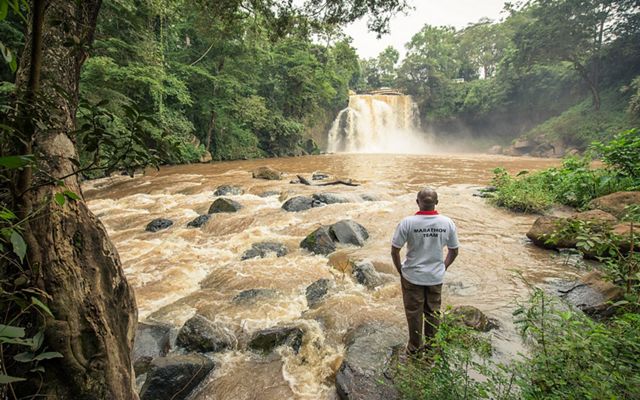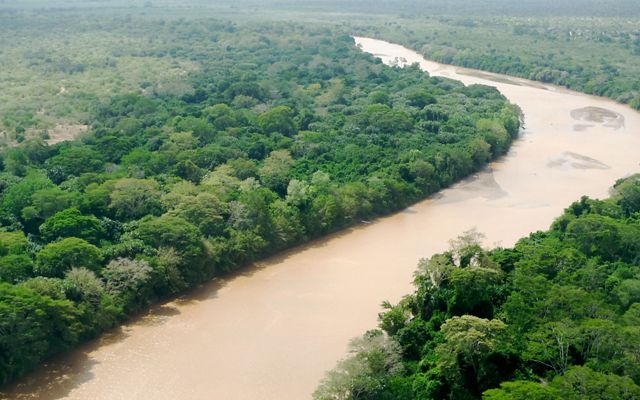Water Resilience Insights
The Nature Conservancy and Diageo's Collective Action Journey
In 2022, The Nature Conservancy (TNC) and spirits company Diageo embarked on a strategic collaboration around water stewardship in Diageo’s priority water basins. Committed to participating in collective action with other key parties like government, NGOs, and companies in each of its 12 priority basins by 2030 to address shared water challenges collectively, Diageo engaged with TNC to make this vision a reality. TNC’s aim is to help mainstream nature-based solutions (NBS) in companies’ business operations and supply chains.
Since the collaboration began, TNC has conducted a thorough assessment of key water basins, identifying significant catchment risks, existing water initiatives and projects, and local and state government policies. Based on these findings, TNC recommended a path forward for Diageo, whether by joining existing collective actions or initiating new ones. This work is underway in basins in Uganda, Nigeria, India, Turkey and Ghana, with plans to complete scoping in two basins in Brazil by mid-2025. TNC and Diageo are pleased to share their insights from the past two years to inform the global conversation on effective collective action for water sustainability.


Key Takeaways from Collective Action—2022-2024:
Adapt to Succeed
- Corporate flexibility is crucial for successful collective action initiatives: Often, suitable collective action initiatives may not exist in the prioritized catchment but could be present in neighboring areas. Empowering teams to explore alternative options and providing a sound rationale is critical for the success of collective action efforts.
- Significant potential exists in certain regions, but proactive steps are lacking: Regions like the Ogun-Osun in Nigeria and the Godavari basin in India show great potential for collective action due to water security challenges and government support. However, despite corporate commitments to water action, there is a noticeable lack of proactive steps toward collective action. Companies need to turn pledges into concrete actions to harness this potential.
Engage Locally
- Local respected convenors of collective action are absent: Experience suggests that in most basins there is no existing appropriate collective action initiative, and, importantly, there is a lack of organizations present which have the experience and respect needed to convene stakeholders and establish new collective actions.
- Local NGOs are crucial for accelerating implementation: Small, local NGOs, with their deep community engagement and understanding, play a vital role in achieving quick progress. Engaging with trustworthy and accountable local NGOs can significantly support quick implementation and outcome achievement, even though nature's processes take time to yield results.
Align for Impact
- Aligning with existing water management plans enhances effectiveness: Integrating proposed collective actions with existing river basin management plans developed by local authorities supports governmental efforts, fosters relationships with public institutions and helps achieve broader water management goals.
- Ambitious and broad thinking is required to drive real change: While leveraging existing resources might seem easy, recognizing the absence of collective actions despite potential underscores the need for daring and enduring approaches. Embracing the challenging path is necessary for achieving substantial and lasting impact.
Commit to Action
- Substantial time and resource commitments are essential for effective interventions: Waterproof analysis (a rapid, pre-feasibility return on investment for NBS projects), simulating four scenarios, highlighted the need for dedicated efforts over 5-10 years and increased annual budgets to achieve positive outcomes in water yield, base flow, sediments, nutrient delivery and carbon storage. Traditional corporate social responsibility funding may be insufficient, emphasizing the need for more substantial investment.
- Time is not on our side. Despite extensive discussions and support for collective actions globally, company commitments are lagging behind the rapidly escalating water security challenges exacerbated by climate change. We must intensify cooperative efforts, engage stakeholders not yet involved and maximize efforts now to avoid future regret over missed opportunities. Let’s ensure we can proudly say, "Through collective action, we did our part to solve the water crisis.”


